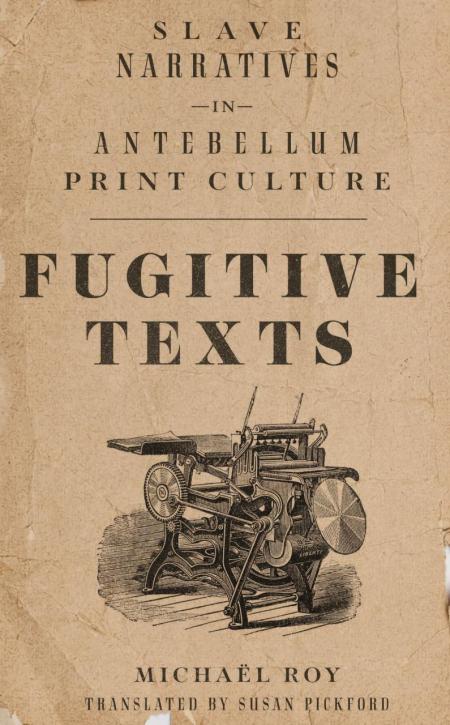
American Antiquarian Society
185 Salisbury Street
Worcester, MA 01609
United States
Antebellum slave narratives have taken pride of place in the American literary canon. Once ignored, disparaged, or simply forgotten, the autobiographical narratives of Frederick Douglass, Harriet Jacobs, and other formerly enslaved men and women are now widely read and studied. One key aspect of the genre, however, has been left unexamined: its materiality. What did original editions of slave narratives look like? How were these books circulated? Who read them?
In Fugitive Texts, Michaël Roy examines the slave narrative as a material artifact. Drawing on a wide range of sources, he reconstructs the publication histories of a number of famous and lesser-known narratives, placing them against the changing backdrop of antebellum print culture. Slave narratives, he shows, were produced through a variety of print networks. Remarkably few were published under the full control of white-led antislavery societies; most were self-published and distributed by the authors, while some were issued by commercial publishers who hoped to capitalize on the success of Harriet Beecher Stowe’s Uncle Tom’s Cabin. The material lives of these texts, Roy argues, did not end within the pages. Antebellum slave narratives were “fugitive texts” apt to be embodied in various written, oral, and visual forms.

Michaël Roy is an associate professor of American studies at Université Paris Nanterre and a fellow of the Institut Universitaire de France. His research focuses on early African American print culture and the history of U.S. abolitionism. He is the author of Fugitive Texts: Slave Narratives in Antebellum Print Culture and the editor of Frederick Douglass in Context and Escapes from Cayenne: A Story of Socialism and Slavery in an Age of Revolution and Reaction.

